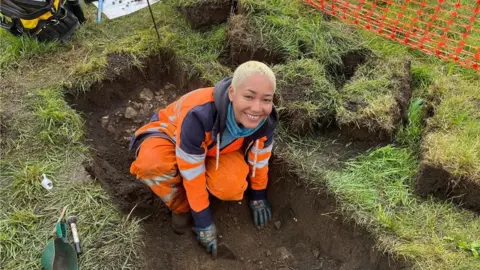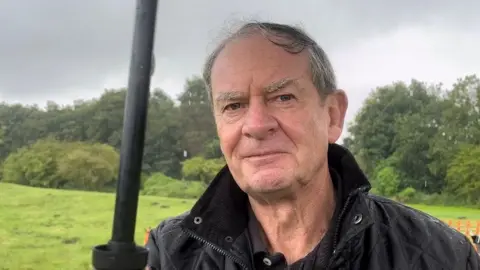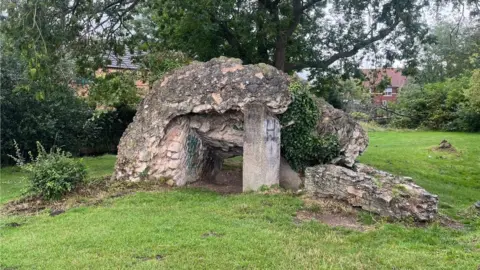First archaeological dig at Sleaford Castle for 160 years
 Grace McGrory/BBC
Grace McGrory/BBCAn archaeological dig is being carried out for the first time in 160 years at a castle once visited by Henry VIII.
Historians hope to find out more about the medieval Sleaford Castle in Lincolnshire during the three-day excavation, which began on Wednesday.
Archaeologists will look at soil samples and dig trenches around the castle ruins to determine its layout.
Garry Titmus, from the Sleaford Castle Heritage Group, said members were "terribly excited" to see work begin.
Mr Titmus said: "We have this wonderful asset for the town of Sleaford, but very few people know it's there. Let's do something about it.
"We are terribly excited that for the first time we are actually doing a bit of digging."
 Grace McGrory/BBC
Grace McGrory/BBCThe castle was built between 1130 and 1135 by the then Bishop Alexander of Lincoln.
Mark Bamford, from the group, explained that the castle had hosted King Henry VIII and his fifth wife, Catherine Howard, during a procession from London to York in August 1541.
Despite its illustrious history, little remains above ground of the castle now.
 Grace McGrory/BBC
Grace McGrory/BBCMr Bamford said: "Lincolnshire doesn't naturally have a lot of building stone. In the 16th Century when the castle fell into disuse, the stone was robbed out and was probably used to build bits and pieces of the town."
The archaeological dig, which is taking place in collaboration with Sleaford Town Council and Archaeological Project Services of Heckington, is expected to finish on Friday.

Follow BBC East Yorkshire and Lincolnshire on Facebook, Twitter, and Instagram. Send your story ideas to [email protected].
